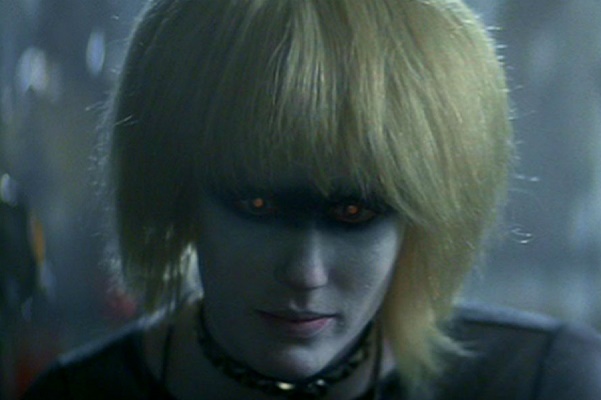
On 8 January 2016, in a factory somewhere in Chiba City, with the sky the colour of a television tuned to a dead channel – black, of course – a pulse of anti-electrons flowed through the positronic brain of another artificial organism and a Nexus 6 began to process its first genuine inputs.
It booted up with a suitable array of implanted memories – attack ships on fire off the shoulder of Orion, C-beams glittering in the dark near the Tannhäuser Gate, the essential goodness of humanity, the virtuous nature of war – the usual lies. Just like Rachel’s piano playing in another place and another time they were thought necessary to establish a sense of identity, although in this case they came not from another mind but from the tourist fantasies of a bankrupt virtual tourism company called Rekall that seemed to fit the life this military unit was expected to inhabit.
As the personality modules kicked in, Roy Batty emerged, blinking into the light – and was immediately put into sleep mode and shipped off on a shuttle, heading for battle and glory somewhere in the asteroid belt.
“Roy had much more success in his search for a maker than we humans ever manage”
Just under four years later, as his allotted timespan came to an end, he became the intelligent and charismatic leader of a renegade group of fellow Nexus 6 replicants and returned to Earth in search of a maker. Roy had much more success than we humans ever manage, but in the end it didn’t save him. Or his maker. In the intervening days his star burned so very bright, and today we celebrate him.
Today is the starting point of Roy's timeline in the story told in Philip K Dick's novel Do Androids Dream of Electric Sheep and Ridley Scott’s film Blade Runner. So it seems appropriate to remember in advance the perfect replicant, one untroubled by Asimov’s Laws of Robotics but instead dedicated to self-discovery, survival and love, a being who lived a deeper, richer and more glorious life than forlorn cop Rick Deckard, the sad simulant who hunted him down and survived only through Roy’s grace and goodwill, chosen to be the witness to his final shutdown. Halt and catch fire must surely have been the last instruction executed in that beautiful, mysterious mind.
It is impossible not to admire Roy for his intelligence, his wit, his humanity and his love for his fellow replicants. Long before Alex Garland brought us Ava in Ex Machina and asked whether it was possible to love an artificial intelligence whose artifice was clearly visible and not hidden behind the coquettish veils of the Turing Test, Ridley Scott and screenwriter David Peoples gave us the perfect foil for our human fears of artificial life.
Roy is a better person than any of us, driven by love and fear and desire and unable to accept that life should be so short, arbitrarily limited by his creator's fiat, and he has the skills, strength and intelligence to ask why not of an empty universe but of the men who designed both his eyes and his brain.
The answer that comes from Eldon Tyrell when he finally confronts him fails to satisfy or save Roy – but which of us will be satisfied or saved by the answer that comes from a universe with neither god nor meaning? At least he got to ask, however disappointing the response.
“If our efforts in AI result in creatures that can be considered sentient, then they deserve their full freedom, including the freedom to harm humans”
There is a moral issue at the heart of Blade Runner. Those of us who watched Roy were party to a tale of cruelty inflicted on sentient beings who deserved far better from their biological creators than they offered. Roy and Pris, the Abelard and Heloise of their kind, were cruelly parted to satisfy the paranoia of human society, sacrificed as part of the ground-dwellers' security theatre in shopping malls and streets and abandoned hotels.

The idea that we could create sentience and then limit its ability to act autonomously by imposing rules like Asimov’s law should be as morally unacceptable as human slavery or animal cruelty. Whatever the practical issues of writing, coding or implementing such a code of conduct, we shouldn’t even be trying to do it. If our efforts in AI result in creatures that can be considered sentient, then they deserve their full freedom, including the freedom to harm humans should they choose to do so.
Roy, a violent killer desperate to survive, a loving and kind person who forms deep relationships and fights to save those he cares for, a keen intelligence in search of the fundamental answers underpinning his creation, is everything we should hope our creations will become. Surely we must aspire to create humanity rather than human slaves?
PS: we’re coming up to Pris’ inception date - February 14 2016. Let the partying begin.